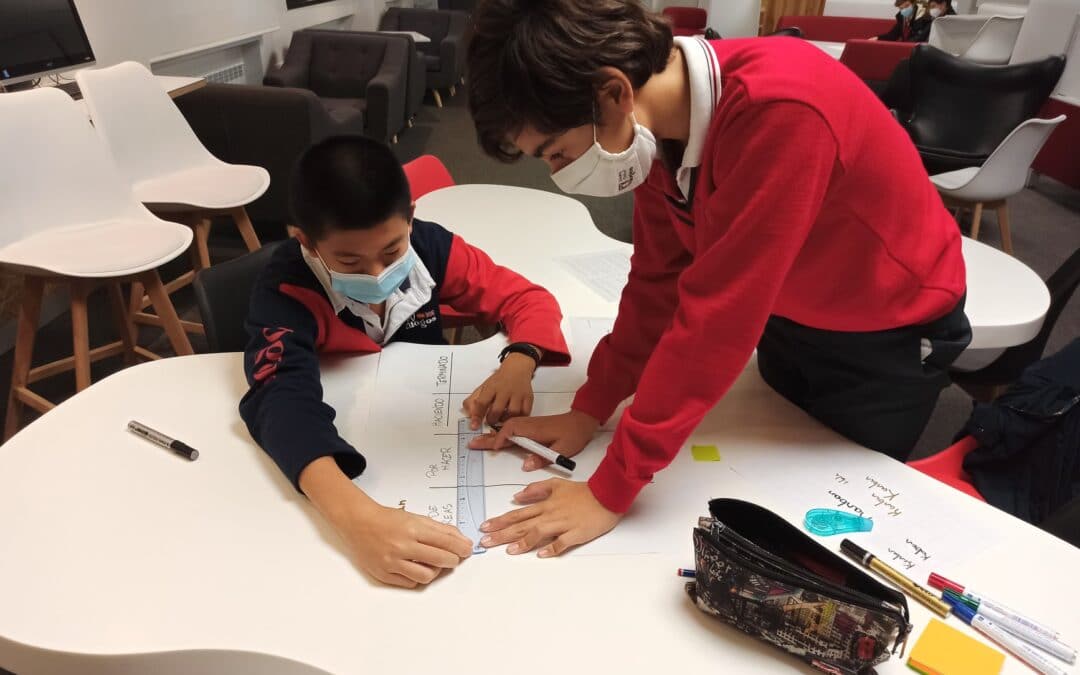En estos tiempos actuales en los que los procesos de enseñanza han sufrido cambios significativos, se hace necesaria la búsqueda de diversos métodos y estrategias que permitan lograr un verdadero aprendizaje cooperativo entre los alumnos.
El aprendizaje cooperativo es un método de enseñanza innovador, que pone a prueba todo el potencial y la creatividad de los profesores en el diseño de actividades relativas al trabajo colectivo. En una época en la que prevalece lo individual, esta metodología potencia también el aspecto emocional de los alumnos.
Definición de aprendizaje cooperativo: qué es
El aprendizaje cooperativo es una práctica educativa basada principalmente en el trabajo en equipo. Es considerada una propuesta metodológica eficiente, capaz de dar respuesta a las necesidades actuales de los alumnos. Para su desarrollo es necesario dividir el aula en pequeños grupos. Es importante, a la hora de establecer los grupos, que los miembros que forman parte del mismo tengan características similares para garantizar que todos tienen las mismas oportunidades de éxito en el desarrollo de la actividad.
Tiene también como propósito establecer vínculos entre los alumnos para la construcción y adquisición de conocimientos, habilidades, destrezas y valores. La cooperación es un elemento indispensable con el que los profesores o instructores diseñan técnicas y estrategias de forma estructurada.
¿Cómo funciona el aprendizaje cooperativo?
El aprendizaje cooperativo funciona basándose en la participación y colaboración de todos los integrantes del grupo. Es necesario que ellos perciban la vinculación que los une al grupo para el logro de los objetivos. Los esfuerzos y el trabajo en equipo proporcionan las herramientas necesarias para reforzar el logro grupal. Para que exista una auténtica cooperación, los profesores deben aplicar una correcta metodología que provoque que todos los miembros unan sus voluntades, no basta solo con agruparlos en pequeños equipos.
Elementos esenciales del aprendizaje cooperativo
Aunque la metodología del aprendizaje cooperativo parece sencilla, hay que tener en cuenta una serie de elementos esenciales que permiten organizar las propuestas educativas.
La interdependencia positiva
Esta es una característica que se pone de manifiesto cuando los integrantes del grupo perciben que el logro de los objetivos está vinculado al trabajo grupal. Los esfuerzos no solo aportan un beneficio individual sino también colectivo. Cuanto más rápido se establezca la interdependencia positiva, mejor se comprenderán las metas comunes e individuales, evitando los conflictos cognitivos.
Responsabilidad individual y grupal
Es una idea sobre la reciprocidad de los esfuerzos. Implica que cada alumno comprenda que tiene una responsabilidad directa en el logro de los objetivos y que el trabajo individual refuerza el trabajo colectivo. Además, todos deben asumir la responsabilidad de alcanzar los propósitos grupales.
Interacción estimuladora
Los participantes promueven el éxito de los demás, colaborando, compartiendo, enseñando, alentando, intercambiando recursos, etc., de tal forma que los objetivos se logran gracias al esfuerzo en conjunto, cuando los miembros del equipo están en contacto unos con otros.
Habilidades interpersonales y grupales
Son habilidades que están relacionadas con el liderazgo social, así como las destrezas interpersonales para entenderse y conectar con los demás. El diálogo, el compromiso, el respeto, la comunicación y la resolución pacífica de conflictos, forman parte del proceso de enseñanza y aprendizaje.
Evaluación grupal
Es vital que todos los participantes sean responsables de la evaluación. Es un proceso de autorregulación en el que se toman decisiones sobre los ajustes y las correcciones de las actividades. También implica una autoevaluación y coevaluación como medio para mejorar la calidad de los compromisos adquiridos.
¿Por qué el aprendizaje cooperativo?
Dentro de los contextos cooperativos, los alumnos tienden a atribuir su éxito a los esfuerzos colectivos, incrementando así sus posibilidades de éxito y motivación personal.
Desde Logos International School, colegio privado situado en Las Rozas, entendemos que la aplicación del aprendizaje cooperativo en la enseñanza conlleva múltiples ventajas. Por un lado, promueve normas dentro de los grupos que fomentan actitudes positivas e impulsan a la realización de tareas por parte de todo el equipo, ayudando así a alcanzar las metas escolares. También permite trabajar la autoestima y la resolución de conflictos. A través del aprendizaje cooperativo se asumen responsabilidades tanto a nivel individual como grupal. Se fomenta la escucha activa, se trabaja la tolerancia y el respeto, y se aprende a utilizar la expresión corporal comunicativa y emocional.
De igual forma, mediante el aprendizaje colectivo se fomentan una serie de valores de igualdad y respeto, convirtiéndose así en una gran metodología que permitirá trabajar de forma integrada diversos contenidos.
Por todo ello, en Logos International School contamos con diferentes proyectos donde nuestros alumnos trabajan en equipo fomentando todos estos beneficios, que los ayudarán a consolidar una madurez personal y social.
Esta propuesta educativa rompe con los esquemas de la enseñanza tradicional, permitiendo diseñar innovadores contextos para el logro de los propósitos educativos.


